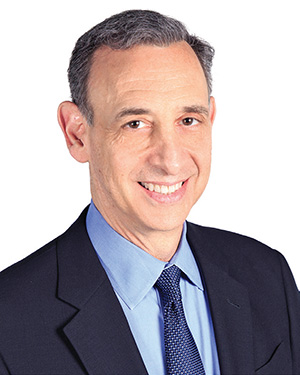
(Courtesy of Englewood Hospital) You may not know the members of the Medical Ethics Committee at Englewood Hospital—perhaps you’ll never need to. Yet it is important to understand the significant role they play in our community, each and every day. Jeffrey Matican, MD, co-chair of the committee, sheds light on this devoted and essential team.
What Is Medical Ethics?
Bioethical dilemmas, which usually arise when patients are doing poorly, can be difficult for physicians and families alike. Sometimes there is conflict or confusion among family members. The Medical Ethics Committee may get involved to help family members and the medical team work toward a common goal or treatment plan.
An example is the management of medical devices at the end of life. Advanced heart failure patients with implanted devices such as pacemakers and defibrillators can present an ethical dilemma. As the patient declines, at what point do the patient, family and physicians decide to turn off the device and let nature take its course? Dealing with such situations can be very emotional and challenging for patients and families. The committee is there to help.
Families also frequently need help in weighing the benefits and burdens of artificial nutrition, as in cases of dementia patients who have feeding tubes. The Medical Ethics Committee might facilitate a discussion with the patient and family on the appropriateness of various options, and help families work through these challenges.
What Is the Central Role of the Medical Ethics Committee in the Hospital?
In my view, medical ethics is the basis of medicine, and guided by three principles: respect for the patient, fostering communication and finding common ground. It’s about respect for people’s autonomy, and it’s about communication.
Medical Ethics Committee
The Medical Ethics Committee is composed of physicians, nurses, clergy, social workers and a member of the community. It meets monthly and provides consultations throughout the hospital, as needed.
The committee has three main responsibilities. First, medical policy formulation, which pertains to clinical policies, such as “do not resuscitate” (DNR) orders, declaration of brain death and withdrawal of care, as well as administrative policies related to organizational ethics, such as vendor relationships and HIPAA. Second, educating hospital staff (doctors, nurses and ancillary staff) and the community on topics such as advanced directives and health care proxies. Finally, providing families, physicians and nurses with consultations on ethical dilemmas.
The committee also assists in mediating medical dilemmas. Sometimes, for example, there may be different perspectives involving the patient themselves, their family and the medical team who are focused on what’s medically and personally in the best interest of the patient’s quality of life. The prevailing principle is that patients who have the capacity to make decisions have the right to self-determination. It’s their decision, and the committee supports them.
Teaching Medical Residents
Once a week, medical residents shadow me in my cardiology practice, to see firsthand what a physician’s office is like and to observe my relationships with patients who have been under my care for 10, 15, 25 years. This is unlike the episodic care that residents experience in the hospital setting. I want the residents to know how to be a doctor in the broadest and deepest sense.
During this time, I try to impart these three pillars of the patient-physician relationship: Respect the patient, listen to the patient and emphasize that communication is the most important part of the relationship.
I explain to our medical residents, “You are not going to learn everything you need to know during residency, or even in four or five years. Learn how to learn; keep an open mind; learn from your colleagues and patients. It’s about lifelong learning. This is what it really means to be a doctor.”
How Does Your Jewish Background Influence Your Interest in Ethics?
Comfort and caring are so important in our culture. Judaism is all about helping and caring. Helping others is part and parcel of why I entered this field. My work in medical ethics also connects me to my days as an undergraduate student majoring in philosophy and history. In medicine—and through medical ethics, specifically—I can make a difference in a very personal way.
Dr. Jeffrey Matican, a member of the Englewood Health Physician Network, is a board-certified interventional cardiologist; he also has a master’ of public health degree. In addition to practicing cardiology, he co-chairs the Medical Ethics Committee at Englewood Hospital, a role to which he has been committed for close to 25 years.
To find a physician at Englewood Health, visit englewoodhealth.org or call 833-234-2234.








